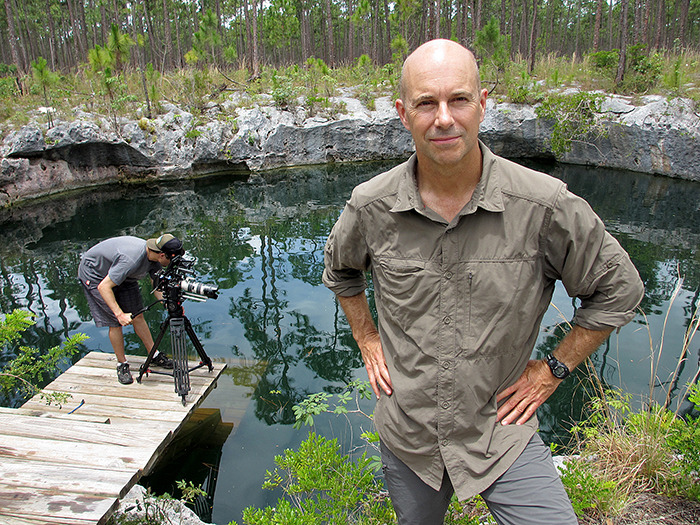3D documentary filmmaking: To buy or not to buy? Why Panasonic AG-3DA1 sensors don’t make the cut
3D camera test update – I’ve had a chance to check out the footage from our recent Panasonic AG-3DA1 test shoot.
The verdict: a renter, not a keeper
Bottom line … it’s a great idea – but a couple incarnations short of buying.
On the plus side, the body is super lightweight at 2.4kg. Compared to rigs like this:

Parallax Film Productions uses 3D camera rig to shoot Dover Castle in Kent, England.
… it’s no small difference.
But now that I’ve seen it in post, it’s painfully clear the sensor size is a dealbreaker. This camera is a great choice to rent if you’re doing lower-end picture work – but that’s as far as I’d go.
What would make it a keeper:
Panasonic needs to increase their 1/4.1” 3MOS image sensor to a 1/3” minimum before I’d buy. The 3DA1 just doesn’t make the cut for the caliber of shows we produce.
I’m going to wait and see what changes and hopefully upgrades to the sensors go into the next version – I suggest you do the same.
Right now this camera comes close to a solid B-cam. But until Panasonic increases the sensor size we won’t be adding this pony to our stable.
–Ian Herring, President

